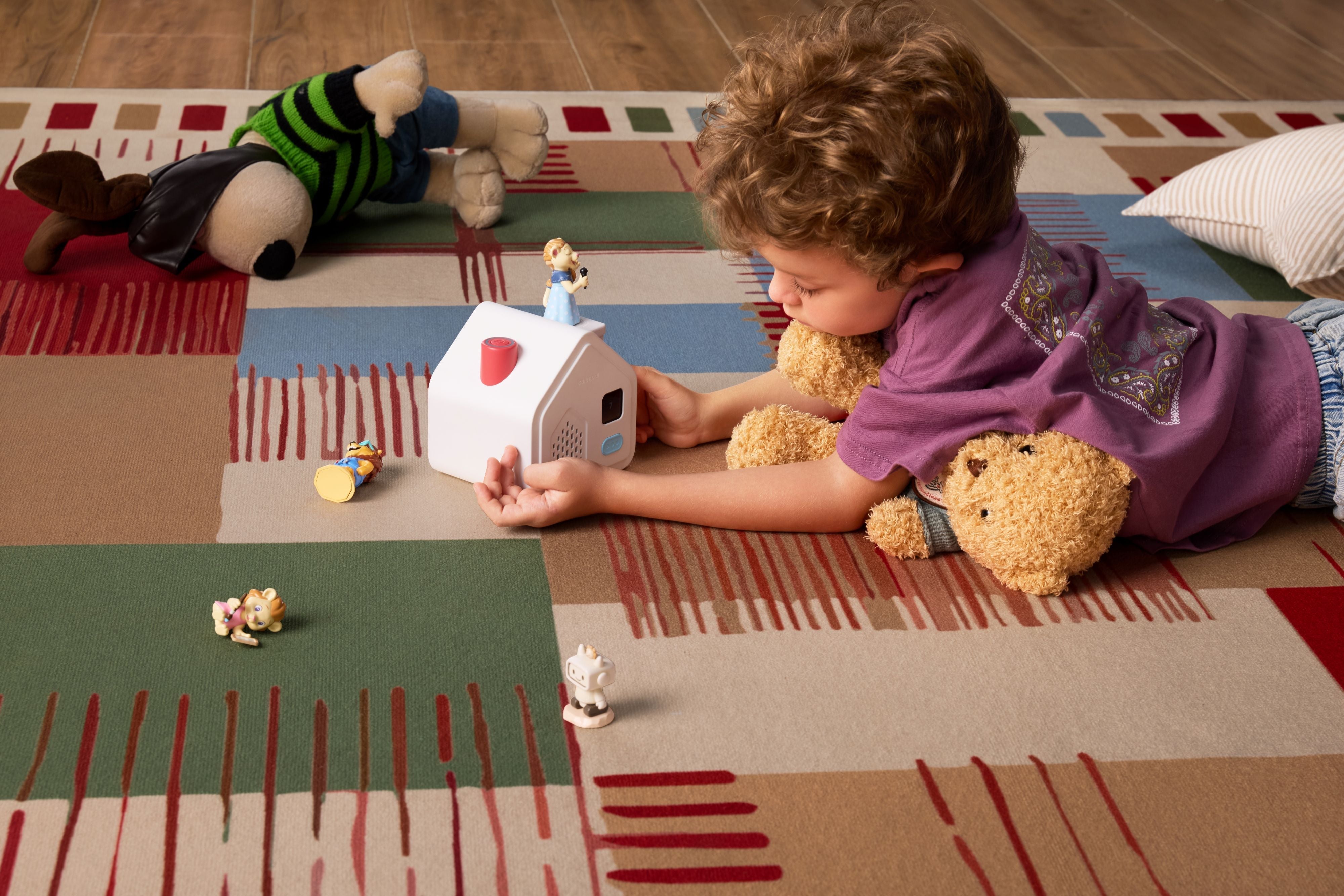It’s 6:00 PM. Your older kids are busy with homework, and your 4-year-old is wandering the house with a pile of books, looking for a companion. "Mom, can someone play? Can someone read this?"
As an only child or a younger sibling with a big age gap, the "lonely" hours between dinner and bedtime are the hardest. You want to help, but your hands are full. Usually, this is when the tablet comes out—followed by the guilt of too much screen time.
Moving Past One-Way Story Players
We tried the standard kids story player, but it didn't last. She would listen for five minutes, get curious about a character, ask a question, and receive... silence. The "play" button can't answer "Why is the bear sad?" or "Where did the bird go?" These are the "golden windows" for learning, and a traditional device just misses them.
That’s why we started using the Talenpal AI Storyteller. It isn’t just a kid’s audio player; it’s a listener.
The Safety of a Guided Conversation
One of the biggest worries with an alternative to a kids tablet is what kind of information your child is getting. If you let a child ask a voice assistant on a phone about a "volcano," they might see a scary video of a real eruption that keeps them awake for a week.
Talenpal is different. It uses a library of verified, age-appropriate educational themes. When my daughter asks questions, the responses are:
-
Filtered and Safe: Designed specifically for children aged 3-8.
-
Character-Focused: The stories are built to teach values like bravery and kindness.
-
Thought-Provoking: Instead of just giving an answer, it encourages her to think.
From Boredom to Brave Conversations
Last night, instead of her usual "I'm bored" restless energy, she spent forty minutes talking with her Talenpal. They went through a story about a little rabbit finding his courage. Afterward, she told me, "Mom, I'm going to be brave like the rabbit tomorrow at preschool."
For a parent, that is the ultimate win. It’s not about "keeping them quiet"; it’s about providing safe audio content for kids that actually helps them grow.
If you are looking to reduce kids screen time but still want your child to feel heard and entertained during those quiet evening hours, this bedtime stories device has been our most trusted addition to the nursery.




Why This Kids Story Player Saves Bedtime
When Your Child Needs More Than Just Stories